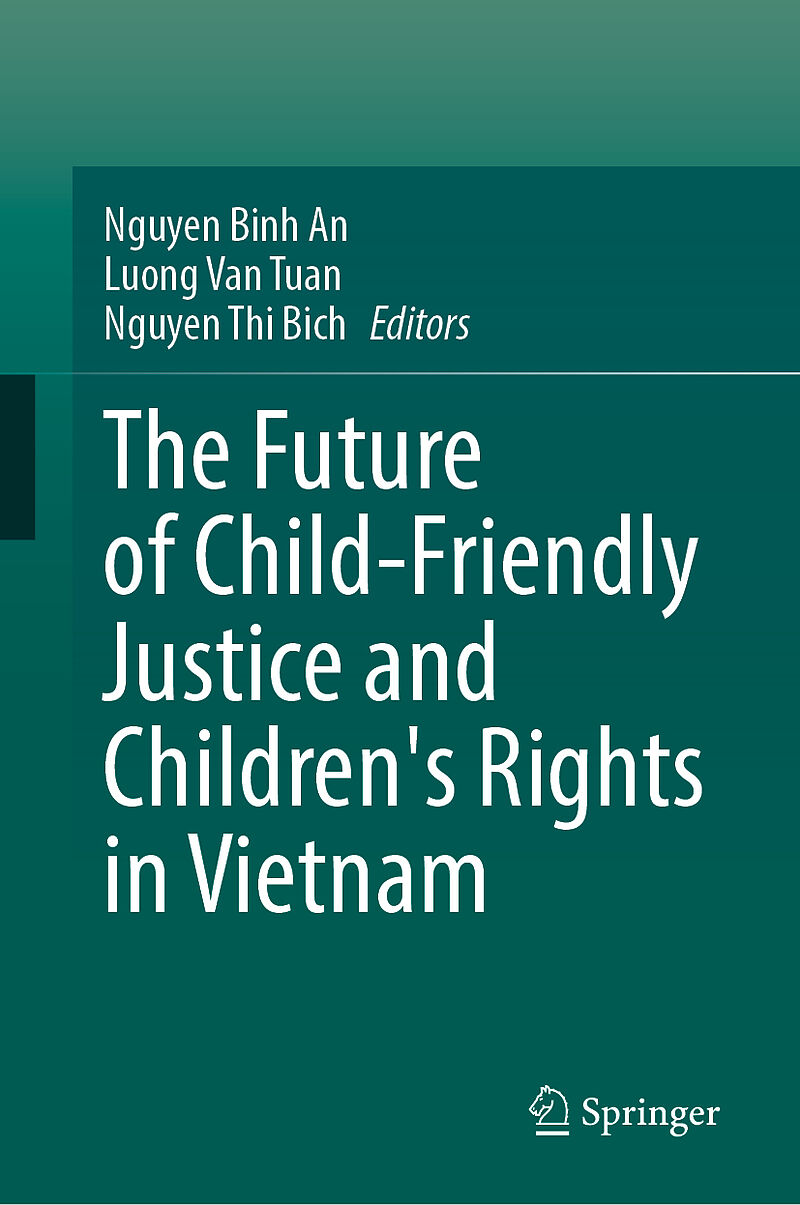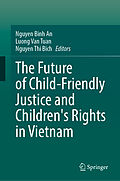

The Future of Child-Friendly Justice and Children's Rights in Vietnam
Beschreibung
This book offers a groundbreaking examination of how Vietnam s legal system is evolving to protect and empower children. Combining theoretical foundations with comparative insights, the book navigates through critical issues such as juvenile justice, child la...Format auswählen
- Fester EinbandCHF 254.50
Wird oft zusammen gekauft
Andere Kunden kauften auch
Beschreibung
This book offers a groundbreaking examination of how Vietnam s legal system is evolving to protect and empower children. Combining theoretical foundations with comparative insights, the book navigates through critical issues such as juvenile justice, child labour laws, digital privacy, and the rights of ethnic minority children.
This book stands out for its integrated approach, which combines legal research with workable policy recommendations specific to the socio-legal setting of Vietnam. The book also highlights emerging challenges, including the impact of artificial intelligence on children's privacy and innovative strategies to prevent child exploitation.
Ideal for legal scholars, policymakers, practitioners, and child rights advocates, this comprehensive book delivers both academic depth and practical recommendations.
Key features include:
Comparative analysis of international child-friendly justice models and their application in Vietnam.
In-depth exploration of emerging issues such as digital privacy and AI s impact on children's rights.
Practical policy recommendations for legal reforms and child protection initiatives.
Multidisciplinary perspectives combining law, policy, and child advocacy.
Autorentext
Dr. Nguyen Binh An obtained his Ph.D. in Law from the School of Law at the National University, Hanoi, in 2018. With a career dedicated to legal education, he served as a full-time lecturer at the Faculty of Law, Binh Duong University, from December 2018 to April 2025. Building on this solid foundation, Dr. Nguyen Binh An joined the Faculty of Law at Van Lang University in May 2025. Dr. Nguyen Binh An's research interests primarily revolve around labor law and human rights. He has published extensively on topics such as labor discipline, freedom of association, gender equality in labor relations, and corporate social responsibility.
Dr. Luong Van Tuan earned his Ph.D in Theory and State History and Law from the Faculty of Law at Hanoi National University, acquired in 2013. Dr. Luong Van Tuan currently holds the position of a Main Lecturer at the Faculty of Law Training at the Judicial Academy since March 2021. Dr. Luong Van Tuan's research specializes in Theory and State History and Law, focusing on topics such as ancient Vietnamese law, organization and operation of the State apparatus, and human rights (including those of children, women, and people with disabilities).
Dr. Nguyen Thi Bich obtained her Ph.D. in Economic Law from Ho Chi Minh City University of Law, Vietnam, in 2019. She has been serving as the Head of the Labor Law Department at the Faculty of Civil Law, Ho Chi Minh City University of Law, since November 2021. Prior to this, she was a lecturer at the same faculty from May 2008 to October 2021. Dr. Nguyen Thi Bich's research interests primarily focus on Vietnamese labor law, collective bargaining, labor dispute resolution, employment rights, and social security. She has extensively studied the impact of new-generation Free Trade Agreements (CPTPP, EVFTA) on labor rights in Vietnam, discrimination in employment, and employer-employee relations.
Inhalt
Part I: Theoretical and Comparative Foundations of Child-Friendly Justice.- Chapter 1. Understanding Child-Friendly Justice: Concepts, Principles, and International Standards (Nguyen Binh An).- Chapter 2. Child-Friendly Justice in Civil Judgment Enforcement: Legislative Reform in Vietnam (Hoang Thi Thanh Hoa).- Chapter 3. The Future of Child-Friendly Justice on Property Rights of Minors in Vietnam s Civil Law (Doan Thi Ngoc Hai).- Part II. Children s Rights in Vietnamese Law and Justice.- Chapter 4. Labour Rights of Vietnamese Children: Legal Reforms for a Child-Friendly Justice Approach (Nguyen Hien Phuong).- Chapter 5. Eliminating Child Labour in Vietnam: Legal Framework and Policy Solutions (Nguyen Binh An).- Chapter 6. Children's Rights in the Business field - Some Theoretical and Legal Issues in Vietnam (Ha Thi Ut).- Chapter 7. Advancing Child-Friendly CSR: Protecting Minor Workers under Vietnam s Labor Law (Nguyen Thi Bich).- Chapter 8. Corporate Social Responsibility and the Protection of Children from Labor Exploitation in Vietnam s Textile Supply Chain (Nguyen Binh An).- Part III. Child-Friendly Justice in Judicial and Administrative Processes.- Chapter 9. Child-Friendly Administrative Justice For Children In Conflict With The Law In Vietnam (Nguyen Thi Phuong Ha).- Chapter 10. Lawyer Skills in Guaranteeing Fair Trial Rights for Juvenile Drug Offenders in Vietnam (Luong Van Tuan).- Chapter 11. Child-Friendly Justice for Child Victims in First-Instance Criminal Proceedings in Viet Nam (Tran Thi Ngoc Hieu).- Chapter 12. The Model of Child-Friendly Trial under Vietnamese Criminal Procedure Law (Pham Minh Trang).- Chapter 13. Preventing Sexual Abuse of Children under 16 through Criminal Justice Mechanisms (Diep Huyen Thao).- Part IV. Emerging Challenges to Children s Rights in Vietnam.- Chapter 14. Protecting children s privacy rights in cyberspace under Vietnamese law (Dang Thi Hong Tuyen).- Chapter 15. Protecting children s rights in international trade disputes: A legal perspective from Vietnam on products infringing intellectual property rights (Tran Minh Chien).- Chapter 16. Protecting Children's Data Privacy in the Age of AI: Legal Lessons from the U.S. and EU (Le Ho Trung Hieu).- Chapter 17. The Right to Education for Ethnic Minority Children in Vietnam (Nguyen Thi Thu Huong).- Chapter 18. Business Cooperation Contracts and Education Rights of the Child in Vietnam (Vu Thi Bich Hai).
